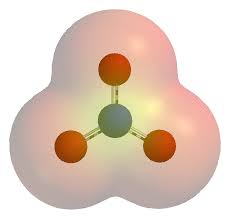记忆方法
将“ion”与“i”代表“我”或“独立”,“on”代表在某个地方结合,形成一个记忆:一个“我”或“独立个体”站在某个地方,代表的是带有电荷的原子或分子,即离子。这样可以帮助记忆“ion”是离子这个概念。
以上内容由AI生成, 仅供参考和借鉴
中文词源
ion 离子
来自希腊语ion,走,来自PIE*ei,走,上路,词源同ire(拉丁语,现在主动不定式格),iter(拉丁语,过去分词格),exit,itinerary.后1834年,英国物理学家Michael Faraday借用该词来表示电磁的电离子。
英语词源
- ion (n.)
- 1834, introduced by English physicist and chemist Michael Faraday (suggested by the Rev. William Whewell, English polymath), coined from Greek ion, neuter present participle of ienai "go," from PIE root *ei- (1) "to go, to walk" (cognates: Greek eimi "I go;" Latin ire "to go," iter "a way;" Old Irish ethaim "I go;" Irish bothar "a road" (from *bou-itro- "cows' way"), Gaulish eimu "we go," Gothic iddja "went," Sanskrit e'ti "goes," imas "we go," ayanam "a going, way;" Avestan ae'iti "goes;" Old Persian aitiy "goes;" Lithuanian eiti "to go;" Old Church Slavonic iti "go;" Bulgarian ida "I go;" Russian idti "to go"). So called because ions move toward the electrode of opposite charge.
权威例句
- 1. Hamlet was played by Romania's leading actor, Ion Caramitrou, to rapturous acclaim.
- 哈姆雷特由罗马尼亚的一流演员伊恩·克拉米宙来饰演, 以引起轰动.
- 2. Objective To detect the color damage in patients with idiopathic neuritis ( ION ) after the treatment.
- 目的观察特发性视神经炎 ( ION ) 患者治疗后色觉损害情况.
- 3. Any ion electrostatically bound to the exchanger is referred to as counterion.
- 靠静电引力结合在交换剂上的离子,叫做平衡离子.
- 4. The hydrated proton has been included in the calculations as one ion.
- 水合质子作为一种离子包括在计算中.
- 5. A measure of polarising power is the field strength of an ion.
- 极化能力的度量单位是离子的场强.

